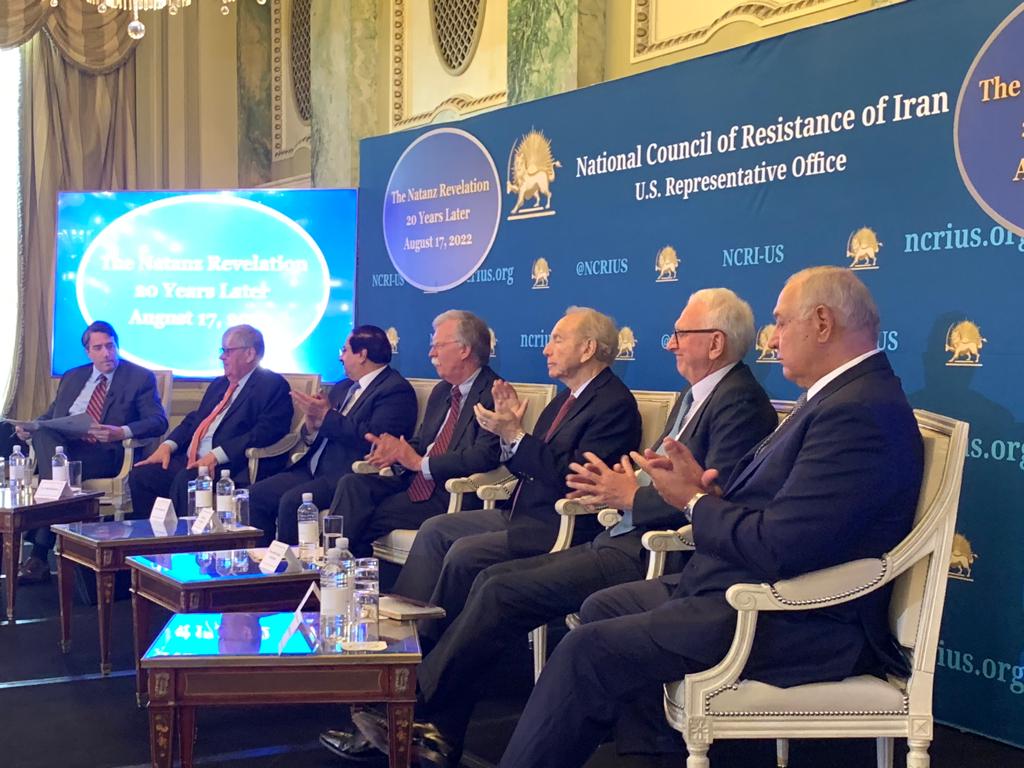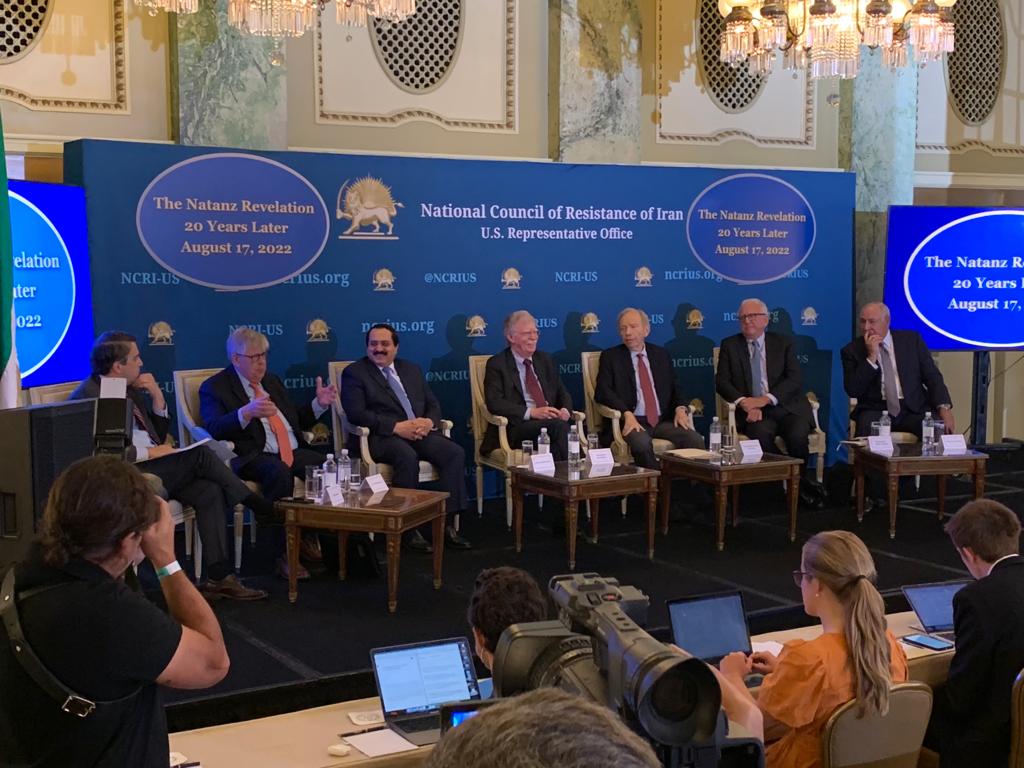Washington, DC, August 17, 2022: The National Council of Resistance of Iran – U.S. Representative Office (NCRI-US), held a conference on Iran on the 20th anniversary of its 2002 groundbreaking revelation of the secret Natanz nuclear site in Iran.
A distinguished array of national security and non-proliferation experts addressed the current state of the Iranian regime’s nuclear weapons program, Ebrahim Raisi‘s agenda and scorecard after one year in office, and options for an effective Iran policy.
NCRI-US Conference Speakers
Honorable Joseph Lieberman, former United States senator from Connecticut
Ambassador John Bolton, former National Security Advisor, former Undersecretary of State for Arms Control and International Security, former U.S. Ambassador to the UN
Ambassador Robert Joseph, former Undersecretary of State for Arms Control and International Security
Dr. Olli Heinonen, former Deputy Director General, International Atomic Energy Agency; Distinguished Fellow, Stimson Center
General Chuck Wald, former Deputy Commander of U.S. European Command
Mr. James Rosen, Chief White House Correspondent, Newsmax (moderator)
Ms. Soona Samsami, U.S. Representative, National Council of Resistance of Iran
Mr. Alireza Jafarzadeh, Deputy Director, Washington Office, NCRI

The Revelation
On August 14, 2002, the main Iranian opposition movement, the National Council of Resistance of Iran (NCRI) – relying on the detailed information obtained by the network of its principal member, the MEK, inside Iran – revealed the existence of a secret nuclear site in Natanz, central Iran. The revelation triggered the International Atomic Energy Agency (IAEA) inspections of the Iranian nuclear sites for the first time. Twenty years later, it is evident that Iran’s nuclear program has always been a nuclear weapons project.
The Significance
The revelation of Natanz by the NCRI was groundbreaking because:
- It led to the start of the IAEA monitoring of all exposed nuclear sites in Iran, which has continued to date.
- Shed light on the whole nuclear weapons program.
- It was followed up with several other revelations to provide a comprehensive picture of Tehran’s nuclear weapons program.
- It led to six UN Security Council resolutions on Iran.
- Helped save the world from the ability of the world’s leading state sponsor of terrorism to arm itself with a nuclear bomb, a potential disaster of colossal consequence.
- It showed the depth and breadth of the network of the Iranian Resistance inside Iran.
An Excerpt From the Speeches
A brief selection of the speakers of this conference along with the video is as follows:
Soona Samsami, US Representative of the NCRI-US: The indisputable fact has been and continues to remain that the regime in Tehran will never abandon its nuclear weapon because it views it as a guarantee for its survival.
Alireza Jafarzadeh, Deputy Director of the NCRI-US: Natanz’s revelation was groundbreaking. It was important because it wakened the world about the nuclear program of the Iranian regime, and it opened doors for IAEA to be able to have inspections.
Amb. John Bolton: The revelation of Natanz was very important for the US government… It was important for the people in Washington, and our friends in Europe to focus on the threat from Iran.
The 2002 revelation significantly impacted how we thought about Iran and the need to respond to the Iranian nuclear program.
Dr. Olli Heinonen, then deputy director of the IAEA—International Atomic Energy Agency, explained his visit to Iran following the NCRI-US’ 2002 revelations of the regime’s secret sites at Natanz and Arak.
General Chuck Wald explained the military perspective of Iran’s nuclear sites, following the NCRI-US’ 2002 revelations of the regime’s secret sites at Natanz and Arak.
Senator Joe Lieberman: The 2002 revelation of Alireza Jafarzadeh on behalf of the NCRI set the context for a bipartisan way to respond to this issue.
Amb. Bob Joseph: My view is that Iran today is a virtual nuclear weapons state. It has progressed from our position of no enrichment to enrichment by advanced centrifuges that within days can raise the level from 60 percent in enrichment to weapons-grade enrichment and on the weaponization front.

